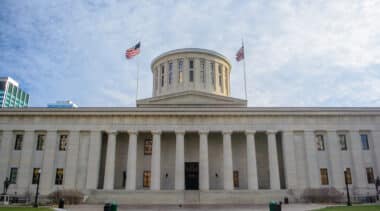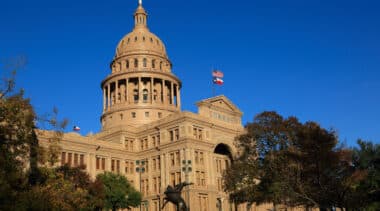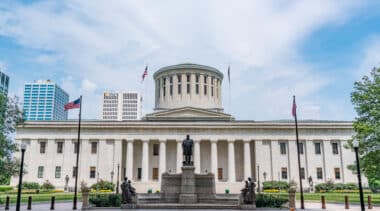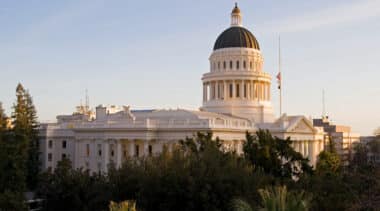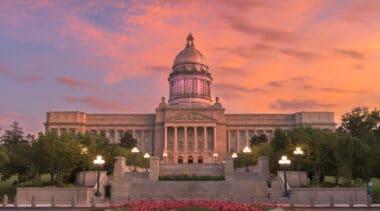-
GDPR and constraints for AI startups
Policymakers need to weigh the potential benefits to consumers from enhanced privacy protections against the costs imposed on AI-driven technology.
-
Congressional hearing highlights need for gas tax replacement
The Highway Trust Fund is on the verge of insolvency and Congress needs to get back to the user-pays principle.
-
Comparing the Ohio State Teachers Retirement System’s offerings to gold standards in retirement plan design
Ohio STRS is a national leader in offering flexibility and choice to workers but can make improvements.
-
Louisiana bridge debate shows P3 advocates must communicate benefits to drivers and policymakers
A wake-up call on the need for increased educational efforts on tolling and long-term public-private partnerships.
-
Texas needs public school open enrollment
A robust open enrollment law would give students access to available seats in all public schools and ban public schools from charging transfer tuition.
-
Ohio’s teacher retirement reforms are working well, but more needed
The Pension Integrity Project finds approximately 75% of STRS’ unfunded liabilities can be attributed to interest on pension debt that has accrued since 2001.
-
The FTC claims Amazon is a monopolist but misunderstands online retail
The narrow and rigid definition of online retail markets on which the FTC builds its case against Amazon is out of step with a high-tech economy.
-
One of the flaws in DOJ’s anti-trust case: People overwhelmingly choose Google
Even the European Union's 'choice screen' regulations haven't dented Google's dominant market position.
-
Calls for public pension systems to divest from energy sector are shortsighted
Public pension systems have a fiduciary duty to make investment decisions in the best financial interest of their members.
-
Parents can be satisfied with public schools and also want more educational choices
If more states expanded their education marketplaces, more families could afford to prioritize factors besides location.
-
Examining calls to bring back Alaska’s defined benefit pensions
Bringing back Alaska's defined benefit pensions would be unlikely to improve retention or recruitment but could add $9 billion in unfunded liabilities.
-
New data shows Arizona’s public schools, including rural ones, can compete in an education marketplace
Schools are attracting students from outside their boundaries, giving students and families options to find the public schools best for them.
-
Mississippi River is dangerously low and outdated federal law is blocking solutions
The 1906 Foreign Dredge Act forces the U.S. to use smaller, older, and less efficient dredges than Europe is using.
-
Preliminary evidence on the safety of automated vehicles is overwhelmingly positive
As robotaxis expand, early results indicate that Waymo’s automated vehicles are almost certainly safer than typical human drivers.
-
Connecticut’s efforts to reform public pensions may add long-term costs for taxpayers
Long-term goals are likely undermined by the law’s extended amortization schedule and introduction of a DROP program.
-
California law would create arbitrary and questionable bans for cannabis product labels
The bill passed by the state legislature and headed to Gov. Gavin Newsom would add to California's overregulation of legal marijuana products without resolving any problems.
-
Florida counties need to take a new approach to transit services
Five actions that Sarasota and Manatee counties can take to improve transit.
-
The long road to Kentucky’s limited medical marijuana legalization
Participants in the new Kentucky medical program will face limitations not typically found in most states, including a continued ban on smoking marijuana.


